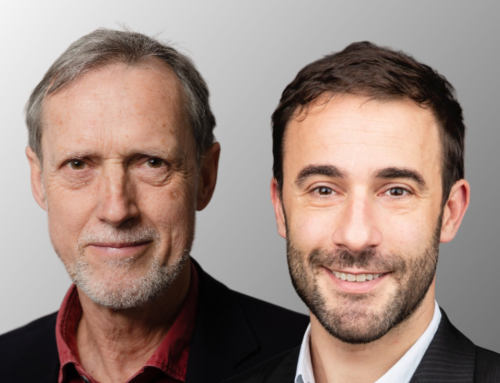
Consultant in European Affairs
Professor at ESCP Business School and Corps des Mines
As May is associated with Europe Day and traditionally invites us to take a step back and take a critical and positive look at European issues, we are pleased to speak with Yves Bertoncini, a professor at ESCP Paris and the Corps des Mines. With him we briefly review several topics: the state of public opinion, European citizenship, strategic autonomy, the previous mandate’s record and the upcoming Spanish Presidency. According to him, the occurrence of numerous external challenges explains a strengthening of pro-European sentiment among people and many advances in the field of “sovereignty” in recent years.
Q1. There has been a clear increase in favourable opinions towards the European Union since the end of the eurozone crisis in 2015. 47% of EU citizens trust the EU and 62% are optimistic about its future, with confidence in the EU remaining higher than that placed in national governments. How do you interpret this change in opinion, which may, however, hide national disparities?
The occurrence of external challenges normally contributes to the strengthening of the sense of belonging and the degree of confidence in the EU. Faced with the pandemic crisis, the Russian invasion of Ukraine and environmental perils, it is cooperative and unified approaches that have prevailed – much more than during the eurozone crisis and in the face of the massive influx of asylum seekers… Recent EU initiatives have also produced tangible and unprecedented actions and results, from the purchase in bulk of vaccines to the ‘Next Generation EU’ recovery plan, from the delivery of arms to Ukraine to the ever-tightening sanctions against Russia, or even in terms of the fight against climate change. Moreover, since “Brexit” proved to be a rather unattractive affair, it is logical that Europhobia has declined on our continent, even if all kinds of Euroscepticism have not disappeared, on the contrary.
Q2. We are celebrating Europe Day on May 9, which is an opportunity to demonstrate the concrete benefits of the EU but also to reflect on how to bring the people closer to the European political construction. What do you think are the priorities to be pursued to this end?
The 27 peoples that make up the European Union know so little about each other that anything that can help to enlighten or educate them about their ‘fellow citizens’ in neighbouring countries is welcome – this civic information seems to me to be the absolute priority, more than anything that falls under institutional communication about the role of ‘Brussels’. Then, in addition to the concrete benefits of the EU, it is necessary to highlight everything that we have in common – beyond all the conflicts that have opposed us – and therefore everything that distinguishes us from other continents, which is the basis of European identity. It is because we will feel that we are similar that we will be more willing to come together – which is sorely needed in a world where Europe is no longer the centre, and where we have specific interests and vision to promote.
Q3. The President of France, Emmanuel Macron, recently stated in an interview with Les Echos during his trip to China that the “ideological battle for strategic autonomy has been won” but that its implementation required even more determined efforts. Do you share this sentiment, and can it be said that the battle has been won in the minds of the public?
Emmanuel Macron is right to say that the call to strengthen “European sovereignty” that he launched at the Sorbonne University and reformulated many times since then has led to tangible progress since 2017. However, the statements he made upon his return from China are problematic in many ways.
Firstly, because he presents himself as an ideologue, who has also waged a “battle” and declares it “victorious”: this is not the best way to share his convictions and positions with his European partners, especially since this messianic posture contributes to altering his judgement regarding the logic at work since the beginning of the war in Ukraine: in the eyes of many Europeans, the French President has not analysed and stated everything correctly before this war, and his strategy towards Putin, before and after the Russian invasion, is marred by errors of judgement that are ultimately human, but should encourage him to be more humble.
In this context, the conceptual shift from “European sovereignty” to “strategic autonomy” inevitably leads to the question of who needs to become less dependent and thus to move from a unifying approach to a divisive one. If it is a question of focusing on the economic sphere, Europeans can certainly agree to support industrial alliances, multiply “Important Projects of Common European Interest” (IPCEI), especially to reduce the risks of dependence on China, while maintaining the EU’s openness to foreign trade…. But if it is a question of promoting European autonomy in diplomatic and military matters, it is more the United States that seems to be targeted, at a time when the war in Ukraine makes it more indispensable than ever in the eyes of most Europeans…
Advocating for “European strategic autonomy” in the context of the war in Ukraine is already very surprising: if we had been “autonomous” at the time of the Russian invasion, less dependent on our American allies, what would we have done better in terms of military support for Ukraine and sanctions against Russia?! But to apply such a concept to the handling of military tensions surrounding Taiwan just after a trip to China constitutes a rather counterproductive misstep… As for embellishing this plea with an indictment of the USA, of which we could become “vassals”: this turns the manoeuvre into a form of even more damaging diplomatic “harakiri“…
Q4. With the prospect of European elections in the spring of 2024, the European mandate is coming to an end. What is your assessment of the five-year mandate of the EU institutions and in particular of the European Commission, which had placed the “geopolitical” imperative at the top of its priorities? How do you judge Ursula von der Leyen’s personal contribution?
This mandate has once again been marked by the management of external crises and challenges, the threat of the pandemic and then the war in Ukraine. These unforeseen events will unfortunately have cost the lives of many Europeans, while leading the EU to take some unprecedented and memorable initiatives that I have mentioned, in particular the “Next Generation EU” recovery plan and the financing of the delivery of arms and munitions to Ukraine. This mandate will also probably have a significant legislative record, including the launch and implementation of a comprehensive and ambitious “Green Deal”, with first advances and breakthroughs in the fight against climate change and the protection of biodiversity, although much remains to be done.
In this context, Ursula von der Leyen will have proved to be a skillful communicator, who knows how to embody Europe and its actions in the eyes of European and world public opinion. For example, she has been able to make the implementation of the “Green Deal” a top priority for Europe, but also to place herself at the forefront of everything related to the joint purchase of vaccines and political and operational solidarity with Ukraine. Her good external image will undoubtedly compensate for the criticisms that arise from her lack of political collegiality and civic interaction, which will in a way accompany her until the end of her first mandate – let’s see what happens next…
Q5. How do you see the Spanish Presidency of the Council of the European Union in the second half of this year, following the Swedish Presidency? Spain is a traditionally constructive country in Europe, and its priorities are marked by a greater focus on the social dimension of Europe. What progress can we expect on this front?
Spain is one of the major EU countries, but I often hear that it is “punching below its weight”. It is to be hoped that Madrid will take advantage of this rotating presidency to help maintain European unity in the face of the war in Ukraine and to complete the implementation of the EU’s legislative agenda before the spring 2024 elections.
Given its European history, its economic situation and its coalition government, Spain will undoubtedly be keen to strengthen the social dimension of the EU. This will be all the more important as its rotating presidency of the Council unfortunately coincides with the launch of the campaign for the end-of-2023 legislative elections, during which parties like ‘Unidad Podemos’ are sure to focus on social challenges. However, the possible European advances in this area are limited by the principle of subsidiarity and the differences in sensitivity between member states. The Spanish authorities will therefore have to be careful not to over-communicate on European social issues, and to focus on the social support for the ecological and digital transitions in order to make progress that is in line with the current challenges.
I am also curious to know how Spain will approach the challenge of ratifying the trade agreement between the EU and Mercosur, which seems welcome from a geopolitical and economic point of view, but which is bound to raise many social and political reservations, including in France…
Interview conducted on 28 April 2023






